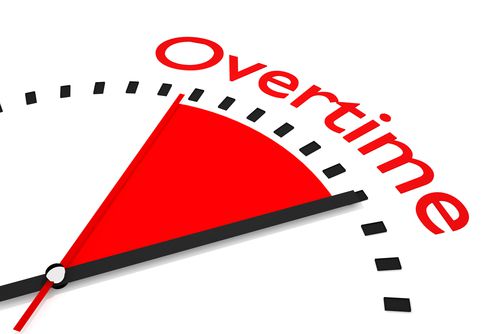As labor lawyers in South Carolina, we constantly monitor any changes to the state and federal laws that impact South Carolina’s employers. In this article, we examine upcoming changes to white-collar overtime regulations that go into effect in December 2016.
Changes to White Collar Overtime Regulations
The “white collar” overtime exemption regulations were changed by a rule issued on May 18, 2016, and take effect on December 1, 2016. “White-collar” refers to the 4.2 million people working in administrative, executive, and professional jobs. The most significant change made by this final rule is the increase in the minimum salary level for white-collar exemptions under the Fair Labor Standards Act (FLSA). The minimum salary increased from $455 per week ($23,660 per year) to $913 per week ($47,476 per year). A worker falling below that earning threshold will not be exempt from overtime pay pursuant to the FLSA.
Highly compensated employees who are subject to minimal duties test also have a salary revision, increasing the entry-level threshold to $134,004.
Up to 10% of this threshold income earned may come from nondiscretionary bonuses, incentives, and commissions, so long as they are paid at least quarterly. If an employer classifies an employee as exempt, they must earn 90% of the minimum salary level per workweek.
What Duties Qualify for the “White Collar” Exemption from Overtime?
If an employee’s salary is above the new threshold, the employee may be exempt from earning overtime pay if his/her duties are one or more of the following:
Executive: Primary duty is managing the enterprise or a customarily recognized department or subdivision of the enterprise; regularly supervises the work of at least two full-time employees; has the authority to hire or fire other employees
Administrative: Primary duty is the performance of office or non-manual work directly related to the management or general business operations of the employer or its customers; exercises discretion and independent judgment with respect to matters of significance
Professional: Primary duty is work requiring advanced knowledge in a field of science or learning (work that is intellectual in character and includes the exercise of discretion and judgment) that is acquired by a prolonged course of specialized intellectual instruction
When Does the Change Take Effect?
These new regulations take effect on December 1, 2016. This means that white-collar employees earning less than $47,476 qualify for overtime pay. The new regulation has built-in automatic increases every three years. The first increase is January 1, 2020, with future increases on January 1 every three years after that. The increase will be based on the 40th percentile of weekly earnings of full-time salaried workers in the lowest-wage census region in the United States.
What Did Not Change?
No changes were made to the exemptions for outside salespeople, teachers, lawyers, or doctors. The new rule doesn’t change the duties tests, so the threshold duties required of exempt white-collar workers must still be met. Additionally, the new rule doesn’t change how employees must be paid: on a fixed, predetermined salary that isn’t subject to reduction due to variations in quality or quantity of the employee’s work.
What Does This Mean for Employers?
Employers should review the current payment amount and structure of currently exempt employees in light of the new salary requirements. Employers may be required to raise salaries, pay overtime, change employees’ workloads, reduce or eliminate overtime hours, and/or adjust employees’ pay structures. Contact an experienced employment lawyer at Gignilliat Savitz & Bettis to review your employee policies, payment, and overtime structures to comply with the new overtime rules.






